#educational collaboration
Text
University of Melbourne's Global Centre: Bridging Education Between India and Australia
The University of Melbourne recently inaugurated its Global Centre in New Delhi, aiming to strengthen partnerships and engagement with local students, alumni, government officials, and educational institutions. This centre is not intended as a teaching facility or offshore campus; rather, it serves as a bridge connecting Indian students to opportunities in Australia.
Key Highlights from the Interview with Professor Michael Wesley
Global Centre Purpose
The Melbourne Global Centre is designed to enhance collaboration with Indian universities and facilitate educational exchanges. An official from the university will be present to assist prospective Indian students with any inquiries regarding admission processes.
No Offshore Campus Plans
When asked about the possibility of establishing an Indian campus, Professor Wesley clarified that the University of Melbourne has no plans for an offshore campus. Instead, the focus will be on expanding educational collaborations with existing Indian universities, developing new programs such as Bachelor of Science and Bachelor of Education.
Concerns Over International Student Caps
The university opposes the recent Australian government cap on international students, viewing it as a detrimental policy. Professor Wesley emphasized that this cap could have lasting negative effects on the higher education sector, student funding, and the broader economy. While the university is preparing to comply, there is hope that the government will recognize the policy's shortcomings soon.
Global Centre Activities
The Global Centre in New Delhi will not offer degree programs but will provide nonaward training and professional development opportunities. It aims to facilitate student exchanges and joint projects between Australian and Indian students, enriching the educational experience for both.
Support for Indian Students
The University of Melbourne values its Indian student community, which has grown significantly over the years. Indian students are actively involved in campus life, contributing to various clubs and societies. The university offers some oncampus accommodation and is committed to assisting students in finding suitable housing.
Future Scholarships
To attract more Indian students, the University of Melbourne is working on new scholarship initiatives, with announcements expected in the coming months.
Conclusion
The University of Melbourne's commitment to enhancing educational partnerships in India through its Global Centre underscores its dedication to fostering meaningful connections between Indian and Australian students. While there are no immediate plans for an offshore campus, the focus on collaboration and support for Indian students remains strong.
#University of Melbourne#Global Centre#International Education#Study Abroad#Indian Partnerships#Educational Collaboration#Higher Education#Student Support#Australia India Relations#Scholarships
0 notes
Text
Top 25 Educational Apps for Students: Enhancing Learning in the Digital Age
Introduction
In an era where technology seamlessly integrates into every aspect of our lives, education is no exception. The digital revolution has ushered in an abundance of tools and resources that have transformed the way students learn, engage, and grow intellectually. These digital tools, ranging from comprehensive educational platforms to specialized apps, offer unparalleled flexibility and…

View On WordPress
#academic resources#art education#augmented reality#classroom tools#coding for kids#creative learning#critical thinking#digital learning#digital literacy#distance education#e-learning#education#educational activities#educational animations#educational apps#educational blogs#educational challenges#educational collaboration#educational communities#educational forums#educational games#educational innovation#educational news#educational podcasts#educational productivity#educational quizzes#educational software#educational storytelling#educational technology#educational videos
0 notes
Text



Zine time, zine time!
I still get downloads of this zine that @notaclevernamer and I made together every week! It is such a delight to know that so many people have found this useful.
You can download this FOR FREE on either Gumroad or on my Ko-Fi page.
Please continue to share this! And as a bonus, please put in the tags what you'd like to see in a possible updated version of this zine!
Feel free to donate but as usual, it's not necessary.
#zine#illustration#sex ed#education#queer#lgbtq#trans#transgender#trans men#transmasculine#collaborative art#zines#huckleberry art
628 notes
·
View notes
Text
A vital part of political knowledge (and knowledge in general) is knowing when to say, "I'm not educated enough to make a statement about this topic."
It's okay if you don't know every little detail of every single issue at hand. But it won't help if you refuse to acknowledge where you lack information, where your blindspots are, and what you just don't understand. It's okay to not have an answer.
#politics#saying you aren't educated about a topic isn't shameful; it's a sign that you have self-awareness of your knowledge#that's a GOOD thing#this is different than willfully refusing to just not learn anything about the world and even then... i don't know if it's right...#...to force people into having An Opinion#having An Opinion is step one. the knowledge gained about topics should lead to the formation of An Opinion#but if you force people to have An Opinion with no knowledge about what they have An Opinion about... that's when it gets alarming#it's okay to not know things. it's okay to not understand certain topics...#...you can let people who actually know whatever topic to lead those conversations...#...and it's likely that YOU have knowledge and opinions that others don't have the knowledge to comment upon#that's how the world kind of works; it ought to be a collaborative effort and a continuous process
182 notes
·
View notes
Text
Via a conversation on Metafilter about the state of Florida's decision to crush its public institutions, a person I think is particularly wise left a comment about the state of the legislature on higher education in Wisconsin.
The situation in Florida is atrocious, but it's important to be aware of how widespread this movement on the part of MAGA politicians to ban all academic and support programs related to gender, race/ethnicity, and sexuality is. I'm a professor in the Wisconsin state university system, where, in addition to my regular fulltime work in my home department I direct the LGBTQ+ Studies Program (a more-than-halftime job I have done for many years in return for zero additional salary, or summer funds, or course buyout, or any other compensation...).
This summer, the Wisconsin state legislature, gerrymandered into permanent Republican control, voted to ban all DEI programs in the state university system, and cut $32 million from the university budget, which it stated was amount of "taxpayer money being wasted on divisive indoctrination efforts" (to paraphrase Assembly Speaker Robin Vos). This comes after years of successive budget cuts and a ten-year tuition freeze and years of faculty and staff taking pay cuts in the form of "furloughs" through which we were expected to just keep working. The situation is now somewhat improved in that Gov. Tony Evers, a Democrat, vetoed the DEI ban, but he cannot restore the funding. Anyway: a few days after the legislative vote to ban DEI , I was giving a talk about the range of state bills attacking trans youth and adults, and there was a Democratic state legislator on the panel. When we were introducing ourselves and I told her I directed the LGBTQ+ Studies Program, she said, "Oh, but that's no longer legal. Well, unless Evers vetoes the ban; we'll see."
After doing some blinking, I responded by explaining the difference between DEI programs and academic programs. DEI programs provide student support services, which is deemed administrative work, in contrast to academic programs. The LGBTQ+ Resource Center and the LGBTQ+ Studies Program at my university are both vital and important. But the resource center organizes support groups and social activities for students, while the academic program teaches classes and sponsors academic talks. Academic programs are not part of the DEI system--and the very same legislature that voted for the DEI ban had spent years prior threatening sanctions against students and faculty for supposedly not sufficiently respecting the absolute value of free speech in academia. Legislators presented instructors as censorious ideologues, students as snowflakes in love with a victim narrative, and the legislature as the champion of teaching and discussing all ideas freely.
The image of DEI programs presented by Republican legislators is some kind of kink fantasy, in which cis straight white men are forced to prostrate themselves, declare themselves to be bad and deserving of punishment, and lick the boots of students who are trans and queer, of color and feminist. The reality is that university DEI programs are providing mental health services and tutoring and social support to college students, at a time when their levels of mental health challenges are very high. They have zero to do with the kink humiliation fantasy, they really are about inclusion, and it is ludicrous and cruel to cut social support to marginalized college students.
But even if the state ban were not vetoed, a DEI ban does not dismantle programs like Gender Studies or African and African Diaspora Studies or LGBTQ+ Studies, because they are academic programs, I explained to the Democratic legislator. But from her response, it was clear that not only did Republican Wisconsin legislators think they'd banned all academic programs examining race/ethnicity, gender, sexuality, and who knows what else (disability studies? Jewish studies and Islamic studies?), but that the Democratic legislators seemed to believe so as well.
The flip from "we are the party of free speech!" to "we are the party that bans books and entire academic disciplines!" happened with dizzying speed. But take it from me as a trans person--these legislative attacks can burst across the country in the space of months, shifting the landscape radically. The thing about the MAGA movement is that it is made up of people who believe that the situation is desperate, the American project is on the verge of failure, and the time has come to destroy or be destroyed. Most Americans, including non-MAGA Republicans, want to see the culture war cool down and Americans get along, but MAGA-sorts want it to go hot. And I have to admit some despair about what to do about this, because of the unpersuadability of this group. Take a look at Question 39 from this CBS/YouGov poll of Iowa voters last week, and what percentage of Republican voters there believe they are being lied to by various parties. The percentage of MAGA voters who said they said they believed they were being told the truth by Trump was 71%, in comparison to 63% for friends and family, 56% for conservative news sources, and 42% for religious leaders. Only 32% of Iowa Republicans generally believed they were told the truth by medical scientists. (The figures for Joe Biden and "liberal media" were 10% and 8% respectively.)
It is hard to persuade people with facts and logic and calls for empathy when they think you are a liar attacking their great leader with whom 99% say they identify. What we have to do is persuade others to stand up. And I don't want to be doomy, but my experience with resisting transphobic legislation and action causes me a lot of concern. It's not just "the face-eating leopards won't eat my face" problem. The fact is, frankly, that a lot of institutions and people are craven. This past year I was in a working group with medical and social scientists advising the HHS about creating guidelines for research with intersex and transgender populations, and then Libs of TikTok spread lies about hospitals supposedly performing "sex changes" on little kids, and several children's hospitals received bomb threats--and suddenly most of the medical researchers working with trans youth were pulled from the working group by the hospitals they were affiliated with. Hospital administrators are shutting down research on trans youth and clinics serving trans youth, rather than having the backs of threatened doctors and patients, handing a victory to the face-eating leopards who growled at them.
My conclusion is that we need to focus energy on teaching people who have not dealt with serious bullying before how to stand up to bullies. For people like concerned parents considering attending school board meetings to oppose book bans, we could teach basic mutual aid strategies, like forming a supportive group to attend together. But what we are to do about people like college administrators and corporate executives who would like to do the right thing for students and employees, but not as much as they'd like to avoid offending a wealthy donor or receiving negative conservative media attention. . . that's a big question to me.
I have left my own longer comment in the wider thread.
(If you also like longform, thoughtful text conversation, this is my regular plug for Metafilter as a platform. If you DM me an email address, I can send you an invitation link for a free account.)
#metafilter#education#public education#colleges#legislators#cannot fucking believe the DEI thing#the thing is I have collaborated with this person in the past and he is a deeply sensible human being#so if he says this is what the legislators think#I believe him
90 notes
·
View notes
Text

collab with @nayadaartist
#fundamental paper education#fpe art#oc#oc art#original character#fpe oc#art collab#collaboration#fundemental paper education#fundamental paper education oc#fpe
17 notes
·
View notes
Text
The Philosophy of Truth Seeking
The philosophy of truth seeking involves the rigorous and systematic pursuit of truth and understanding across various domains of knowledge. It encompasses the methodologies, ethical considerations, and intellectual virtues necessary for discerning what is true from what is false. This philosophy is fundamental to disciplines such as epistemology, science, and ethics, and it plays a crucial role in how individuals and societies form beliefs, make decisions, and establish values.
At its core, truth seeking is driven by the belief that truth is valuable and worth pursuing for its own sake, as well as for its practical benefits. Philosophers have long debated the nature of truth, the methods by which it can be discovered, and the criteria for determining its validity. Some key aspects of the philosophy of truth seeking include:
Epistemology: The study of knowledge and justified belief. It explores the nature, scope, and limits of human knowledge, as well as the methods for acquiring and validating it.
Scientific Method: A systematic approach to inquiry that relies on observation, experimentation, and empirical evidence to develop and test hypotheses about the natural world.
Intellectual Virtues: Traits such as open-mindedness, intellectual humility, critical thinking, and perseverance that are essential for effective truth seeking.
Ethical Considerations: The moral responsibilities associated with seeking and disseminating truth, including honesty, integrity, and respect for evidence.
Truth seeking is not just an individual endeavor but also a collective one. It involves the collaborative efforts of communities of scholars, scientists, and thinkers who build upon each other's work, challenge each other's assumptions, and refine their methods over time. In this way, the philosophy of truth seeking underpins the progress of human knowledge and the advancement of society.
#philosophy#epistemology#knowledge#learning#education#chatgpt#metaphysics#ontology#Truth Seeking#Scientific Method#Intellectual Virtues#Ethics#Critical Thinking#Inquiry#Rationality#Evidence#Integrity#Open-Mindedness#Intellectual Humility#Collaboration
7 notes
·
View notes
Text

The Voice of the Children, Collected by June Jordan and Terri Bush, Designed by Susan Mann, Holt, Rinehart and Winston, New York, NY, 1970 [then Washington Square Press, 1974]
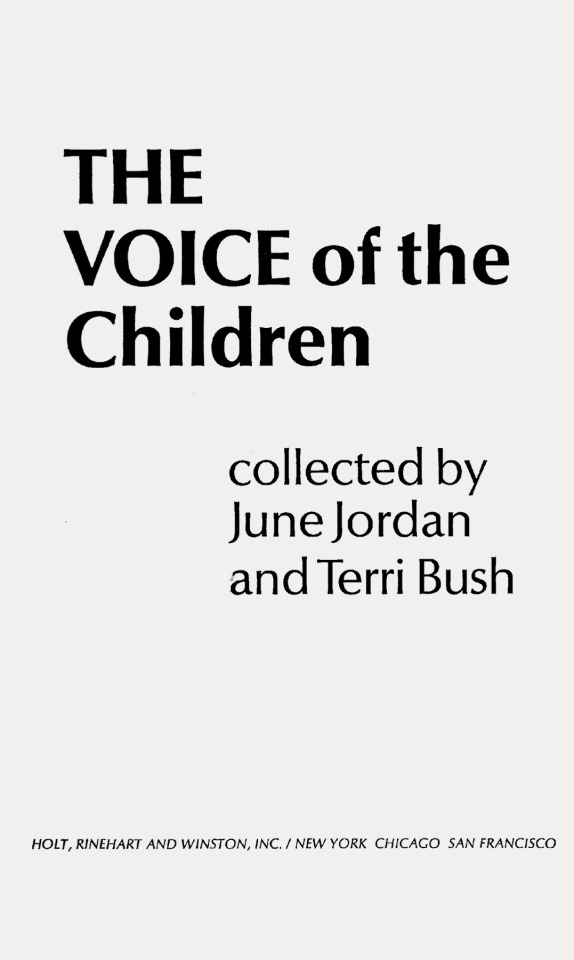
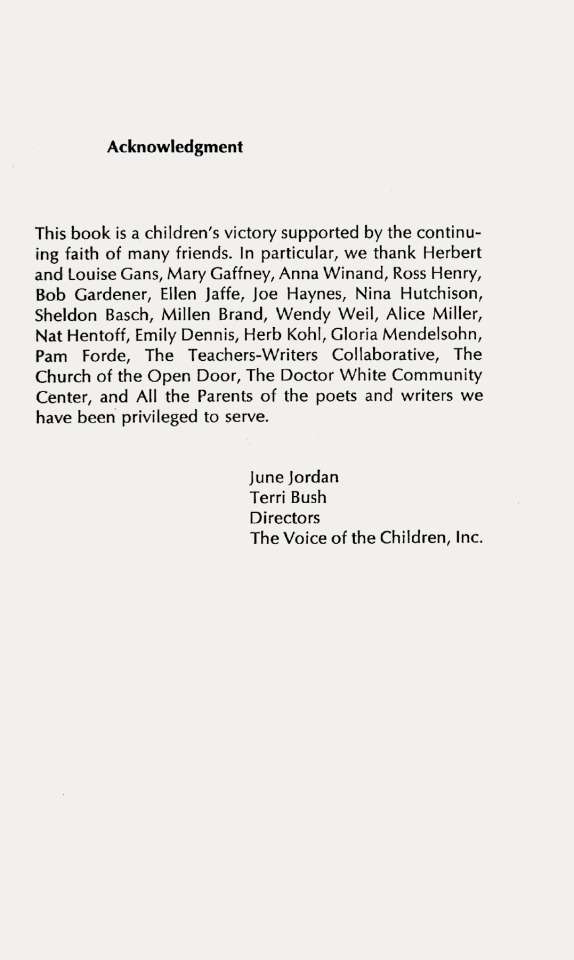

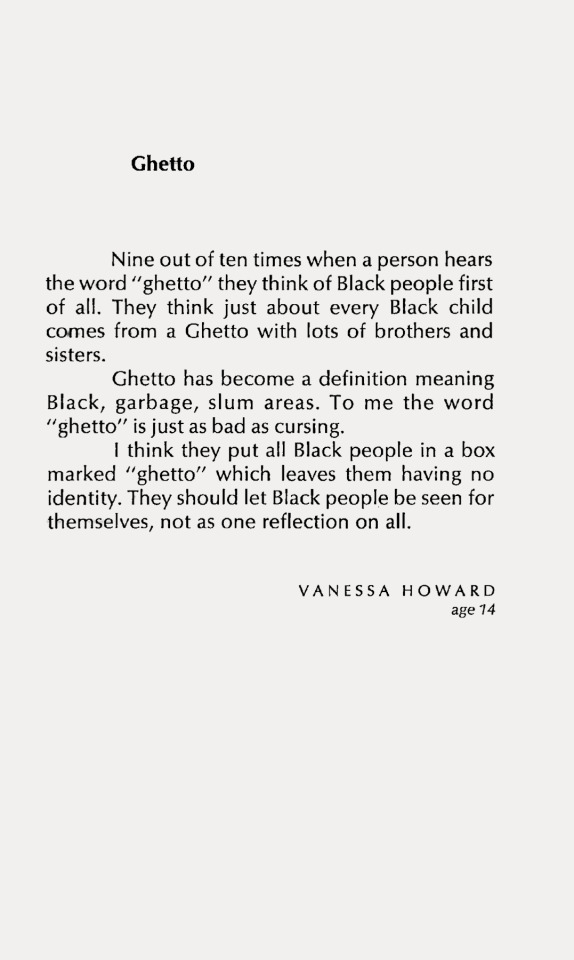
#graphic design#education#poetry#book#cover#book cover#june jordan#terri bush#susan mann#teachers and writers collaborative#holt rinehart winston#washington square press#1960s#1970s
28 notes
·
View notes
Text
fuck it imma yap
when i was like 16, i wrote my first article about asexuality. it provided a brief overview (probably not done very well, retrospectively, but i was 16) (also the article probably doesn't exist anymore)
im basically 23 now. and im working on an article (but, like, slightly academic this time) about asexuality (and my favourite concept in humanities thus far, the capabilities approach)
i am sleep deprived, i am in pain from my period, i am feeling horrible physically.
but i am reading and taking notes and fuck, this is so exciting and it's gonna be amazing (i hope, anyway)
heh, wish me luck!
and yes, this is how i am procrastinating on writing my bachelor thesis. if asexuality was considered more political, i'd write my BA thesis about that... now i'm working on gender and education in Slovakia
#asexual#ace#asexuality#i've been something of an ace 'activist' since i realised i was ace#and look where it got me#i have a semi popular account on insta where i sometimes post educational ace content#my tiktoks are for some mysterious reasons being watched#i have collaborated on a news article about asexuality#i went to like 4 in person events and one of them was in a different country#i co organised one of these events#there were some smaller stuff too like cooperation on a big insta project with a bunch of other people#or when we were making a game for activism stuff i included asexuality in there#and just general writing and yapping about ace stuff#it's been years since i've been doing that and so far it's going really great and i am happy i'm doing this
8 notes
·
View notes
Text
New transistor’s superlative properties could have broad electronics applications
New Post has been published on https://thedigitalinsider.com/new-transistors-superlative-properties-could-have-broad-electronics-applications/
New transistor’s superlative properties could have broad electronics applications
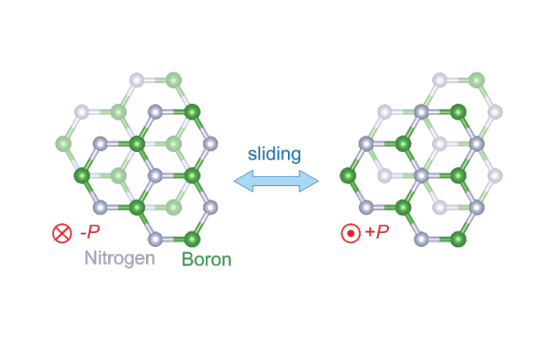

In 2021, a team led by MIT physicists reported creating a new ultrathin ferroelectric material, or one where positive and negative charges separate into different layers. At the time they noted the material’s potential for applications in computer memory and much more. Now the same core team and colleagues — including two from the lab next door — have built a transistor with that material and shown that its properties are so useful that it could change the world of electronics.
Although the team’s results are based on a single transistor in the lab, “in several aspects its properties already meet or exceed industry standards” for the ferroelectric transistors produced today, says Pablo Jarillo-Herrero, the Cecil and Ida Green Professor of Physics, who led the work with professor of physics Raymond Ashoori. Both are also affiliated with the Materials Research Laboratory.
“In my lab we primarily do fundamental physics. This is one of the first, and perhaps most dramatic, examples of how very basic science has led to something that could have a major impact on applications,” Jarillo-Herrero says.
Says Ashoori, “When I think of my whole career in physics, this is the work that I think 10 to 20 years from now could change the world.”
Among the new transistor’s superlative properties:
It can switch between positive and negative charges — essentially the ones and zeros of digital information — at very high speeds, on nanosecond time scales. (A nanosecond is a billionth of a second.)
It is extremely tough. After 100 billion switches it still worked with no signs of degradation.
The material behind the magic is only billionths of a meter thick, one of the thinnest of its kind in the world. That, in turn, could allow for much denser computer memory storage. It could also lead to much more energy-efficient transistors because the voltage required for switching scales with material thickness. (Ultrathin equals ultralow voltages.)
The work is reported in a recent issue of Science. The co-first authors of the paper are Kenji Yasuda, now an assistant professor at Cornell University, and Evan Zalys-Geller, now at Atom Computing. Additional authors are Xirui Wang, an MIT graduate student in physics; Daniel Bennett and Efthimios Kaxiras of Harvard University; Suraj S. Cheema, an assistant professor in MIT’s Department of Electrical Engineering and Computer Science and an affiliate of the Research Laboratory of Electronics; and Kenji Watanabe and Takashi Taniguchi of the National Institute for Materials Science in Japan.
What they did
In a ferroelectric material, positive and negative charges spontaneously head to different sides, or poles. Upon the application of an external electric field, those charges switch sides, reversing the polarization. Switching the polarization can be used to encode digital information, and that information will be nonvolatile, or stable over time. It won’t change unless an electric field is applied. For a ferroelectric to have broad application to electronics, all of this needs to happen at room temperature.
The new ferroelectric material reported in Science in 2021 is based on atomically thin sheets of boron nitride that are stacked parallel to each other, a configuration that doesn’t exist in nature. In bulk boron nitride, the individual layers of boron nitride are instead rotated by 180 degrees.
It turns out that when an electric field is applied to this parallel stacked configuration, one layer of the new boron nitride material slides over the other, slightly changing the positions of the boron and nitrogen atoms. For example, imagine that each of your hands is composed of only one layer of cells. The new phenomenon is akin to pressing your hands together then slightly shifting one above the other.
“So the miracle is that by sliding the two layers a few angstroms, you end up with radically different electronics,” says Ashoori. The diameter of an atom is about 1 angstrom.
Another miracle: “nothing wears out in the sliding,” Ashoori continues. That’s why the new transistor could be switched 100 billion times without degrading. Compare that to the memory in a flash drive made with conventional materials. “Each time you write and erase a flash memory, you get some degradation,” says Ashoori. “Over time, it wears out, which means that you have to use some very sophisticated methods for distributing where you’re reading and writing on the chip.” The new material could make those steps obsolete.
A collaborative effort
Yasuda, the co-first author of the current Science paper, applauds the collaborations involved in the work. Among them, “we [Jarillo-Herrero’s team] made the material and, together with Ray [Ashoori] and [co-first author] Evan [Zalys-Geller], we measured its characteristics in detail. That was very exciting.” Says Ashoori, “many of the techniques in my lab just naturally applied to work that was going on in the lab next door. It’s been a lot of fun.”
Ashoori notes that “there’s a lot of interesting physics behind this” that could be explored. For example, “if you think about the two layers sliding past each other, where does that sliding start?” In addition, says Yasuda, could the ferroelectricity be triggered with something other than electricity, like an optical pulse? And is there a fundamental limit to the amount of switches the material can make?
Challenges remain. For example, the current way of producing the new ferroelectrics is difficult and not conducive to mass manufacturing. “We made a single transistor as a demonstration. If people could grow these materials on the wafer scale, we could create many, many more,” says Yasuda. He notes that different groups are already working to that end.
Concludes Ashoori, “There are a few problems. But if you solve them, this material fits in so many ways into potential future electronics. It’s very exciting.”
This work was supported by the U.S. Army Research Office, the MIT/Microsystems Technology Laboratories Samsung Semiconductor Research Fund, the U.S. National Science Foundation, the Gordon and Betty Moore Foundation, the Ramon Areces Foundation, the Basic Energy Sciences program of the U.S. Department of Energy, the Japan Society for the Promotion of Science, and the Ministry of Education, Culture, Sports, Science and Technology (MEXT) of Japan.
#2-D#affiliate#applications#atom#atoms#author#billion#boron nitride#career#Cells#change#chip#collaborative#computer#computer memory#Computer Science#Computer science and technology#computing#education#electric field#Electrical Engineering&Computer Science (eecs)#electricity#Electronics#energy#engineering#flash#Foundation#Fundamental#Future#green
2 notes
·
View notes
Text

Integrated framework from Tabletop EDU that describes the many learning opportunities TTRPGs present.
www.tabletopEDU.org
#TTRPGs#Tabletop#Roleplaying Games#Learning#Education#Academic Literacy#Socio-Emotional Learning#Projective Identity Trajectories#Attention Restoration#Mindset Learning#21st Century Skills#Critical Thinking#Communication#Creativity#Collaboration
4 notes
·
View notes
Text
Pink Academia Lifestyle Masterpost Project
Starting a huge project where I compile a masterpost of ideas and advice and everything nice about a Pink Academia lifestyle- everything from fashion, to film, and study advice, to food and drink. If anyone has anything they really want to see or any contributions, send me an ask or a dm.
Here's what I want to start working on:
- Fashion
- Activities
- Studying
- Careers/Career Advice
- Health (food and fitness, P.I.E.S)
- Advice for different educational points in life (juniour school/middle school, upper school/high school, university, studying for fun)
- Areas of Interst (social issues eg feminism, race studies, queer studies)
- Entertainment (film and tv, music, theatre books etc)
I want this to be a collaborative effort, and I'm open to as many ideas as you guys have! Thank you to everyone, and think pink!
46 notes
·
View notes
Text
College Study Group: Looking for Better Results? Here's How to Make it Work
College can be a whirlwind of lectures, assignments, and exams. Juggling it all can feel overwhelming. That's where a well-functioning college study group can be a game-changer.

Study groups leverage the power of collaborative learning. By discussing course material, explaining concepts to each other, and working on problems together, you can gain deeper understanding, boost motivation, and ultimately achieve better results.
However, not all study groups are created equal. Some can be distracting or inefficient, leading to frustration instead of success. So, how do you make a great college study group that maximizes learning outcomes?
College Study Group Success: Key Ingredients
Here are some essential elements for creating a college study group that sets you up for success:
Finding the Right People: Look for members with similar learning goals and course schedules. Choose individuals who are motivated, reliable, and actively participate in discussions.
Setting Clear Goals and Expectations: At the outset, establish clear goals for each study session. Decide which topics to cover, what questions to address, and what you aim to achieve by the end of the session.
Scheduling Regular Meetings: Consistency is key. Schedule regular meetings at a time and place that works well for everyone. This ensures dedicated time for focused learning and prevents procrastination.
Creating Ground Rules: Discuss and establish ground rules for your group. This could include things like arriving prepared, respecting everyone's contributions, and maintaining a focused and productive learning environment.
Embracing Diverse Learning Styles: Recognize that everyone learns differently. Accommodate different styles by incorporating a variety of study methods like discussions, practice problems, or visual aids.
Making the Most of Your Study Group
Once you have the right group in place, here are some tips to ensure your college study group is truly effective:
Preparation is Key: Come prepared to each session. Review course material beforehand, identify areas you need clarification on, and bring any questions you have.
Active Participation: Don't be a passive observer. Actively participate in discussions, explain concepts to others, and ask clarifying questions. The more you engage, the deeper your understanding will be.
Respectful Communication: Create a safe space for open communication and respect diverse perspectives. Actively listen to your peers' contributions and offer constructive feedback in a positive way.
Focused and Time-Managed Sessions: Minimize distractions and maintain a focus on the goals you set for the session. Utilize your time effectively to ensure you cover all intended topics while allowing room for discussion and questions.
Sharing Resources: Supplement your study sessions by sharing helpful resources like online articles, relevant video tutorials, or practice problems from other sources.
Beyond the Classroom: College Study Groups and Explain Learning
The benefits of college study groups extend beyond the traditional classroom setting. Online learning platforms like Explain Learning can facilitate college study groups for geographically dispersed students or those with different schedules.
Explain Learning offers tools and features that enhance your online study group experience:
Collaborative Learning Tools: Utilize Explain Learning's whiteboards, online document editors, and shared study guides to work together on assignments and problem sets in real-time.
Communication Features: Facilitate communication through online forums, group chat functionalities, and video conferencing options to discuss course material and plan study sessions.
Supportive Online Community: Connect with other Explain Learning users enrolled in the same course or subject area. Find potential study group members or simply expand your learning network.
Conclusion: College Study Group Success Starts Today
A well-functioning college study group can be a powerful tool for academic success. By following the tips outlined above and leveraging the resources available on Explain Learning, you can create a collaborative learning environment that fosters deeper understanding, motivation, and ultimately, better results. So, gather your classmates, set clear goals, and embark on a rewarding learning journey together!
Know more https://explainlearning.com/blog/college-study-group-better-results/
#college study group#study group#collaborative learning#college study group success#make a great college study group#college study groups#explain learning#E-learning#usa#learning#education#united states
3 notes
·
View notes
Text
Enhancing CSR Impact through Collaboration with Marpu Foundation
The importance of corporate social responsibility (CSR) is higher than ever in the quickly changing business environment of today. Working together with like-minded organizations is crucial as companies look to improve society and the environment. The Marpu Foundation is one such collaboration that has a great deal of potential to increase the impact of CSR.
At the forefront of social change and sustainable development, the Marpu Foundation | NGO has established itself as a beacon of hope for communities worldwide. With a diverse portfolio of initiatives spanning education, healthcare, environmental conservation, and more, the foundation embodies a commitment to creating a better future for all.
"Marpu" - a synonym for transformation - was established by the respected National Youth Awardee, Mr. Kadiri Raghu Vamsi. Marpu Foundation | NGO focuses on harnessing the potential of individuals to bring about positive change in the world. With a team committed to effecting change and providing a supportive space for all, the Marpu Foundation earned the title of "The Best NGO in India" in 2020.

Emphasizing employee involvement and volunteering is one of the main features of the Marpu Foundation's CSR approach. It has over 80,261 volunteers and over 10,245,120 beneficiaries operating from 39 locations in 15 states. The themes of their work center on environmental sustainability, economic development, social development, and partnership for the goals.
Partnering with the Marpu Foundation not only enhances corporate social responsibility (CSR) efforts but also significantly contributes to advancing Sustainable Development Goals (SDGs). Marpu Foundation's projects are exemplary models of sustainable development, promoting social, economic, and environmental well-being. Here's how partnering with Marpu can boost CSR efforts and support SDGs, illustrated through some of their impactful projects:
1. Education Initiatives (SDG 4 - Quality Education): Marpu Foundation's education initiatives focus on providing quality education to underserved communities. Partnering with Marpu in these initiatives allows corporations to support SDG 4 by investing in programs that enhance access to education, improve literacy rates, and empower marginalized groups. For example, a partnership could fund the establishment of schools in rural areas, provide scholarships for underprivileged students, or support vocational training programs.

2. Clean Water and Sanitation (SDG 6 - Clean Water and Sanitation): Marpu Foundation undertakes projects aimed at ensuring access to clean water and sanitation facilities, particularly in areas facing water scarcity and poor sanitation. Collaborating with Marpu in such projects enables companies to address SDG 6 by funding the construction of water infrastructure, implementing water purification systems, or promoting hygiene awareness campaigns in communities lacking access to clean water and sanitation.
3. Women's Empowerment (SDG 5 - Gender Equality): Marpu Foundation is committed to promoting gender equality and women's empowerment through various initiatives such as skill development programs, entrepreneurship training, and advocacy for women's rights. Partnering with Marpu in these endeavors allows corporations to support SDG 5 by investing in projects that foster economic independence and social empowerment among women, thereby contributing to creating more inclusive and equitable societies.
4. Environmental Conservation (SDG 13 - Climate Action): Marpu Foundation actively engages in environmental conservation efforts aimed at mitigating climate change and preserving biodiversity. Corporations can enhance their CSR initiatives by partnering with Marpu in projects such as afforestation campaigns, sustainable agriculture practices, or renewable energy projects. By supporting these initiatives, companies can align with SDG 13 goals and demonstrate their commitment to environmental stewardship.

5. Healthcare Access (SDG 3 - Good Health and Well-being): Marpu Foundation works towards improving healthcare access and promoting health awareness in underserved communities. Collaborating with Marpu in healthcare projects allows corporations to contribute to SDG 3 by funding medical camps, establishing healthcare centers, or supporting vaccination drives. By investing in healthcare initiatives, companies can help reduce healthcare disparities and improve the overall well-being of communities.
In conclusion, partnering with the Marpu Foundation offers corporations a unique opportunity to bolster their CSR efforts while making meaningful contributions towards achieving the Sustainable Development Goals. Through strategic collaborations with Marpu, companies can address pressing social, economic, and environmental challenges, driving positive change and creating a more sustainable future for all.
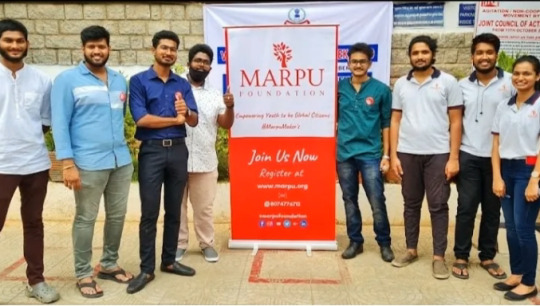
#Enhancing CSR Impact through Collaboration with Marpu Foundation#CSR impact#csr activities#csr#marpu foundation#best ngo in india#sustainable development#volunteering#largest volunteer organisation#quality education#gender equality#good health#economic growth#poverty#inequality#climate action#water and sanitation
2 notes
·
View notes
Text
International Workers' Day.
May Day’s Call for Solidarity, Empowerment Advocacy and Global Impact
May Day, also known as International Workers’ Day or Labour Day, is observed on May 1st in numerous countries, unifying a diverse tapestry of individuals under the banner of workers’ rights and social and economic achievements. It represents a day of remembrance for labor movement milestones, notably the fight for the…

View On WordPress
#Advocacy#Collaboration#Cultural Heritage#Diversity#Education#Empowerment#Global Impact#International Workers&039; Day#Labour Day#May Day#Resilience#Social Justice#Solidarity#Unity#Workers&039; Rights
2 notes
·
View notes
Text
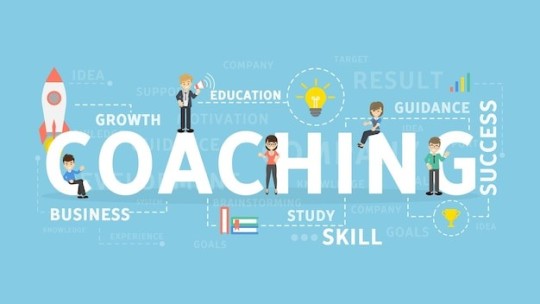
Unlocking Opportunities: How a Trusted Education & Career Coach Facilitates Study in the UK
In the vibrant city of Dubai, where innovation meets tradition, the journey of Trusted Education & Career Coaches and consultants unfolds with promising opportunities and transformative innovations. As Dubai continues to position itself as a global hub for education and business, students in the region are witnessing a dynamic evolution in the way they learn, explore career paths, and prepare for the future. In this blog post, we delve into the multifaceted aspects of education and career opportunities for Dubai students, from emerging trends in learning to the diverse pathways in the professional realm.
Virtual Reality Classrooms: Stepping into Tomorrow
Imagine students donning VR headsets, transported to ancient civilizations or exploring molecular structures up close. Virtual reality classrooms are revolutionizing learning, turning textbooks into immersive experiences. In Dubai, where innovation is a way of life, VR classrooms are poised to reshape traditional learning paradigms.
One of the defining characteristics of modern education in Dubai is the integration of cutting-edge technologies that enhance learning experiences. Virtual reality (VR) classrooms have emerged as a game-changer, offering students immersive and interactive environments that transcend traditional teaching methods. Imagine a history lesson where students can virtually visit ancient civilizations or a science class where they explore complex molecular structures up close. VR classrooms not only make learning engaging but also foster deeper understanding and retention of concepts.
#AI-Driven Learning Platforms: Personalized Pathways to Success#Meet your digital mentor: AI-driven platforms that adapt to your learning style. From personalized lesson plans to instant feedback#AI enhances the educational journey for Dubai students studying in the UK. Imagine an AI coach guiding you through challenges or recommendi#Alongside VR#artificial intelligence (AI) is revolutionizing education through personalized learning platforms tailored for students studying in the UK.#adaptive assessments#and real-time feedback. Dubai students benefit from AI-powered tools that cater to their unique strengths and areas of improvement#paving the way for personalized learning journeys that optimize academic success.#Global Networking Opportunities: Connecting Dubai to the World#Networking is key in a globally connected world. Dubai students access a vast network through virtual conferences#collaborative projects#and cross-cultural exchanges. The world is at their fingertips#broadening horizons from their classrooms.#Dubai's cosmopolitan environment opens doors to a rich tapestry of global networking opportunities for students. Through virtual conference#and cross-cultural exchanges#students in Dubai connect with peers#experts#and mentors from around the world. This global network not only expands their academic horizons but also nurtures valuable relationships an#Blended Learning: Bridging the Physical and Digital Divide#Welcome to blended learning#where traditional meets digital. Dubai embraces hybrid models#combining in-person interactions with online resources. This approach caters to diverse needs#customizing the learning experience.#Moreover#blended learning equips Dubai students with essential digital literacy skills#critical thinking abilities#and adaptability to thrive in the digital age. As technology continues to evolve#the integration of digital learning tools and resources enhances Dubai's education ecosystem#preparing students for success in an increasingly digital and interconnected world.#Skills of Tomorrow: Nurturing Creativity and Critical Thinking
2 notes
·
View notes